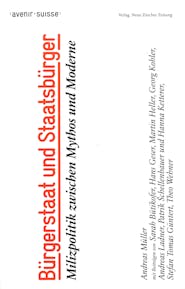More than 100,000 people fill political office in Switzerland’s municipal, cantonal and federal administrations. Most are volunteers working pro bono (often alongside full time paid jobs, ed). This political «militia» system encapsulates the co–operative understanding behind the sense of state in Switzerland, where everyone contributes to the best of their abilities to the general good in a system still enjoying wide public approval. Nevertheless, people’s willingness to come forward is declining steadily. In 2007, some 26% of the adult population was involved in institutionalised volunteering – a category including most political office. By 2013, the proportion had fallen to 20%.
Municipalities have the biggest gaps
Nationally, in the twin chamber federal parliament, there has been a marked trend towards greater professionalisation (ie. politics as members’ sole, full time, occupation, ed). Since the 1970s, the proportion of full time national parliamentarians has climbed steadily and today stands at about 50%. In the Council of States, (the smaller upper chamber, ed) there are no part timers left. In the National Council (the bigger lower chamber, ed) their share has shrunk to 13%. Similarly, in recent years the breadth of occupations among deputies in both chambers has declined.
Many reasons lie behind these developments, including the greater complexity of the issues covered and rising time commitments for parliamentary standing committees. Meanwhile, higher pay has raised the attractions of a seat in the National Council for younger politicians (traditionally, a federal parliamentarian’s modest pay tended to make politics less appealing to younger, career minded citizens, and more a pursuit for older or less financially driven, candidates ed).
By contrast to the federal parliament, most cantonal parliamentarians have full time jobs in addition to their political activities. Striking, though, is the high fluctuation in cantonal assemblies: more than 50% of incumbents are not re-elected after one legislative period or resign voluntarily. They often give pressures of time as their reason for stepping down.
Volunteering’s limits are most conspicuous in local politics, which is where the lion’s share of such posts are to be found. Municipalities regularly face difficulties finding candidates at all. Even frequent reforms, such as better compensation, less work, or more precise job descriptions, have so far had scant effect. And virtually every set of changes has distanced the «militia» system further from its ideal of voluntary, pro bono work. They have diluted the idea of volunteering, as positions have lost influence or, through greater emphasis on remuneration; have become more like «normal» jobs.
«Civic service» to preserve the citizens’ state
Avenir Suisse suggests therefore examining the idea of a «civic service for all». Such an active commitment to the «militia» culture could over time prove a more liberal and self determined solution than preserving the status quo. Otherwise, the continued erosion of the current system will inevitably see the state taking on ever more tasks from overstretched and understaffed voluntary administrations. As matters stand, Switzerland’s «militia» system is a unique institution encouraging citizens to identify with their state. It reinforces the ability to reach compromise and consensus and keeps bureaucracy under bounds. To this «citizens’ state» correspond «state-minded» citizens who play an active part, who are – indeed – its very motors.





